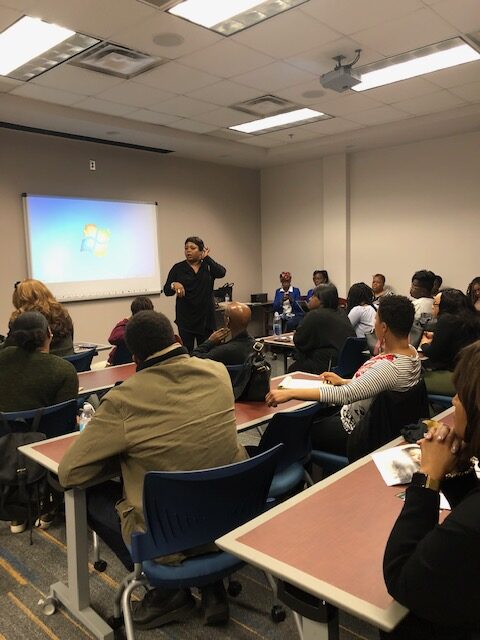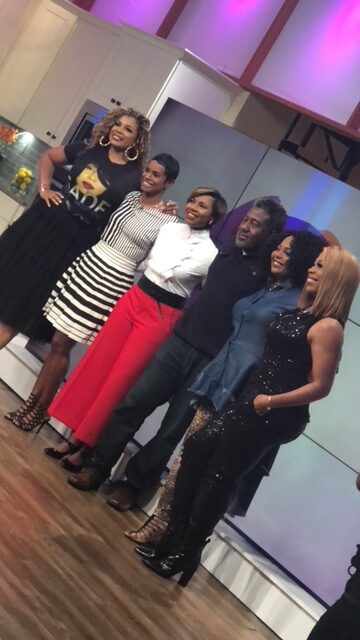Acting Classes
From the Stage To the Screen
&
“Little Oscars”
An Acting and the Business of Acting Workshop for Adults and Children taught by Comedian and Actress Farah Cocoa Brown
Whether you are a working actor, aspiring actor, child actor, just a kid that needs a creative outlet or someone who wants to take the skills and confidence of the actors we pay to watch into your workplace or in your everyday life,
“From Stage 2 Screen” or “Little Oscars” is the course for you!
Taught by 25 year stand up, film and TV veteran Farah Cocoa Brown, who has worked with the likes of Tyler Perry, John Singleton, Ryan Murphy on networks like FOX, CBS, OWN and ABC , you will build and cultivate your skills of Acting for TV and film, using genres as comedy, drama and commercial, their popular and classic works, as well as developing your own characters through improvisation and in-depth character study and analysis . You will develop your own personal connections through the exploration of existing scripts and performances from a variety of genres, and find what genre is exactly right for you. You will also learn about the “Industry” and what that word “Business” truly means in “Show Business”, as well what to do and what to know when auditioning and you “BOOK” the job.
Offering 3 different options, 8- and 12-week courses, weekend Workshops and one on one audition prep and sessions, “From Stage 2 Screen” or “Little Oscars”, gives every individual a chance to learn vital acting skills and show business knowledge.
For pricing and curriculum/workshop descriptions, please contact [email protected]
Curriculum For Cocoa Brown’s “Stage to Screen Actors Studio”
Curriculum For
Cocoa Brown’s
“Stage to Screen Actors Studio”
Who are you? – When you visualize yourself on screen, whether TV, Film or Commercials, what image and/or character do you see yourself portraying? Will it be authentic or will you be “acting”?
What is your character type? – Are you the sex symbol with a wicked sense of humor? Are you the Mom or Dad with humor in their child rearing? Are you the funny, no tact having BFF? Are you the bully that just happens to crack a joke while beating someone up? Are you the dry witted next door neighbor or boss? Knowing what your character type is helps you master the audition and book the role because you will know exactly who your character is before walking in the room.
Stereotypes? – Much as you may not want to be stereotyped, to get in the door you may have to fit into Hollywood’s box of characters. If you are put in a box, own it, know your category and find the ways to slip in other layers to this character.
Owning your character- Study characters that are similar to yours. Almost all characters have been done to some degree. The key is to study those ones close to you and figure out a way to take it up a notch and make it yours.
Character Examples: Ken Jeong – Mr. Chow. Chris Tucker- Smokey. Yvette Wilson- Andell. Jackee’ Harry- Sandra. Tasha Smith- Angela
Being Versatile – No true comedic actor is the same character on screen every single time. There are always different layers to the character. Familiar but evolving is key to longevity in the comedic acting world.
Criticism – Dealing with the criticism of your peers or your culture for apparently perpetuating stereotypes. It is what it is…you can’t please everyone. Know that if you are of a certain race, at some point you will be the stereotype to some degree…just know your limits and boundaries, be proud of your work always. Some of the greats who have perpetuated stereotypes
Brad Pitt – Redneck – Kalifornia
George Clooney – Poor white trash – Oh brother, Where Art thou?
Will Smith – Gay con artist –Six Degrees of Separation
Wesley Snipes & Patrick Swayze – Drag Queen – Too Wong Foo
Angela Bassett – Scorned, Bitter Black woman – Waiting to Exhale
Martin Lawrence, Jamie Foxx, Ving Rhames, Eddie Murphy – Black man in a dress
Brazen Whore – Thandie Newton – For Colored Girls
Ghetto Chick – Halle Berry – BAPS
Blonde Bimbo – Anna Farris- House Bunny
The ultimate method actor anything “Meryl Streep, Helen Mirren, Jeffery Wright and Daniel Day-Lewis has been in.
And the list goes on and look at all of them now…need I say more?
Changing the game – Realizing that playing a character that may seem negative essentially lies on how you play it. That is why it is good to take a class and learn timing and delivery on screen so you don’t have to rely on the joke or the industry’s “perception” of the character. It’s a known fact that quite a few racially, stereotypical roles in sitcoms and films are written by someone that looks nothing like the person they are describing. It is their “perception” of the person of color and usually is it very extreme or off base. Regardless of how it is written a certain way, you have the ultimate choice is how you play it. Know how to define your character and don’t be afraid to rock the boat a bit to make the character less “character-ty” or “stereotypical”.
Creating a memorable character – When playing your character on screen, the key is to make it believable, not over the top. With that said, there are instances when the role might actually call for ‘over the top’. So discernment/knowing what your character calls for are equally as important. Many comedians think if I’m funny on stage or in a sketch, I’ll be funny in an addition and/or screen. It’s more than just being funny. Comedic timing of lack thereof is the death of many comics in audition. There are beats and rhythms that you must feel and take to effectively deliver the joke onscreen, you can only fake it for about 1 minute. Don’t be a slave to your side, they are distracting and truth be told casting directors, directors and producers actually appreciate a little improve, if it bring the character to life. They’d rather you ad lib and stay in character and keep rhythms that focus on a word or two.
Overdoing it – Nothing is worse than being TOO BIG when it’s not called for. With that said, it’s usually better to start a little bigger, because there rule of thumb is audition is…it’s easier to take it down a notch than to bring it up. A huge turn off in the audition is someone trying too hard to find the joke. Remember, all genres (TV, Film, Theater & Commercials) are different…So stick to the rule of “less is more” and apply that to the different delivery required of the particular genre. For example, what might be less in Theater still might be TOO BIG in Film.
Managing tone and facial expressions – Know that a simple facial expression or switch in your tone of voice can sell a joke onscreen way better than word. Again, this plays off the ‘less is more’ approach.
Creating the SPIN OFF character – Making and defining a character that originally may have been designed as an ensemble player on a show and turning it into a character that could easily be taken and given its own show.
Actors doing Stand- up – Many actors have venture over to stand up and a lot of comics are like WHY? Well, it’s not to take your work as a comic (most times anyway_, it’s most commonly them trying to help better define a character they are trying to sell on screen. Doing stand-up makes them define the comedic actor because they have to physically sell the joke. Most comedians have won that battle but it’s up to them to translate that onto screen believable.
The Drama of Comedy – The great Richard Pryor famously said, “The best comedy comes from the greatest pain”. Comedy and drama go hand in hand. And knowing how to transfer pain into comedy is one of the best attributes a comedic actor can have in their arsenal. The industry is not blind and they know a great comedic actor can also be a great dramatic actor as well. Look at Jim Carrey, Jamie Foxx, Richard Pryor, Will Smith, Monique, Katherine Hiegle, Tina Fey.
The Million $ Headshot – Before a casting director or agent even thinks about Google-ing you or watching your reel, they see your headshot. So ask yourself, does it represent the character you are going out for? Does it say funny, yet versatile? They want to see your character but they also want to know you can transform into whatever they need to be. Your headshot must say that.
Recommended Reading – Here are two books I highly recommend you read will help you in your quest for comedic acting greatness.
The Eight Characters of Comedy…A Guide to Sitcom Acting and Writing by Scott Sedita
The Actor Takes a Meeting by Stephen Book
In my 8 week course, “Finding Your Funny”, comedians as well as actors will learn and discover their character (s) and define them, while learning helpful auditioning tips for winning over casting directors, producers and agents. Through helping you become that comedic actor they call because they are “just that good” at what they do!
Classes will begin this spring 2017 & will fill up fast, so call 818-806-9409 or email [email protected] to reserve your spot.


